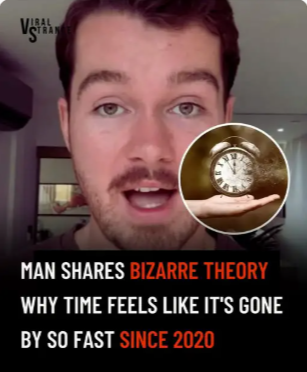
1: Why Time Feels Faster Each Year
Do you feel like time is flying by, especially after 2020? You’re not alone. Many people feel the days are long, but the years are short. A viral TikTok by Thomas Mulligan dives into this idea, offering a simple explanation through his “time perception theory.”
2: The Shrinking Slice of Time
Mulligan explains that as we age, each year becomes a smaller fraction of our life. When you’re a child, one year feels significant—it’s a big chunk of your life so far. For instance, at your first birthday, a year is 100% of your life. By age 10, it’s 10%. By age 30, a year is just 3%, which makes it feel shorter.
3: Routines Make Time Fly
Psychologists agree that time feels slower when we process new experiences. In childhood, life is full of “firsts,” from learning to walk to starting school. These create lasting memories, making time seem stretched. As adults, routines take over, reducing the number of memorable moments and making time feel like it’s speeding up.
4: How the Pandemic Changed Time
The pandemic intensified this feeling. With lockdowns, remote work, and limited socializing, many days blurred together. Neuroscientist Santosh Kesari explains that repetitive routines and digital isolation made the past few years seem like a blur.
5: How to Slow Time Down
To counter this, psychologists suggest breaking routines. Traveling, trying new hobbies, or meeting new people creates fresh memories that stretch time. The “Holiday Paradox” explains this well—while vacations feel short in the moment, the memories make them seem longer in hindsight.
Mindfulness can also help. Paying attention to everyday details, like the feel of water in the shower or noticing scenery, anchors moments in your memory, giving them more weight. Reflecting on your day each night can also enrich your sense of time and make life feel fuller.


